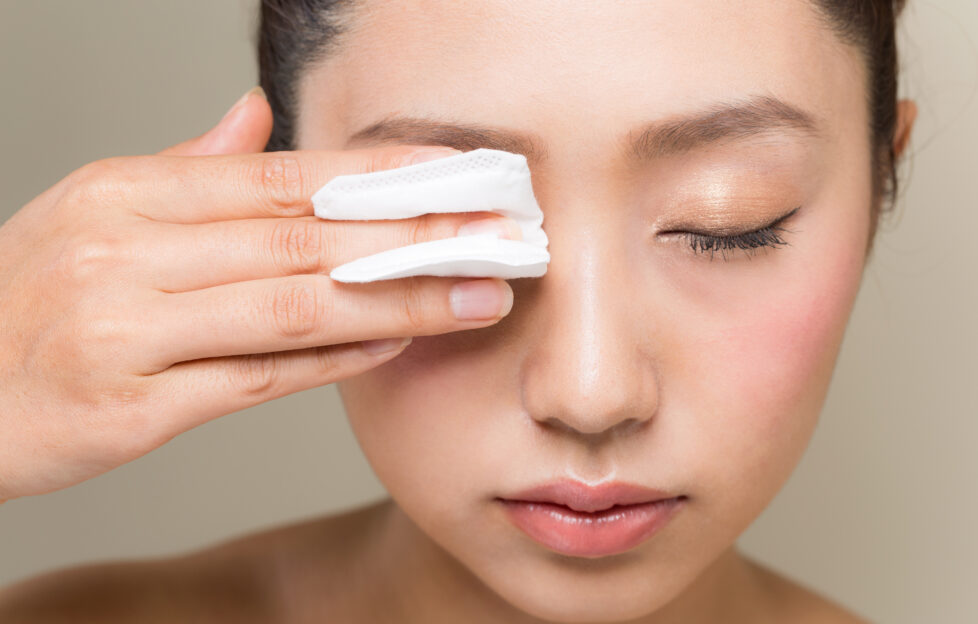 Shutterstock / kei907©
Shutterstock / kei907©Hands up if you assume sight loss is just a part of ageing? Well, you’re not alone. New survey data from charity Guide Dogs has revealed interesting results. Such as 64% of Brits mistakenly believe that sight loss is a natural part of ageing.
The charity wants to raise awareness that maintaining good eye health practices can prevent sight loss from many eye conditions.
In the UK, more than 2 million people are living with sight loss. And, globally, it has been estimated that 90% of vision loss is preventable or treatable.
The survey found that nearly one in five people (18%) had never heard of common eye conditions, such as cataracts, glaucoma, diabetic retinopathy, and myopia. It also highlighted that people were not knowledgeable about the simple ways to look after their eyes. Or the unhealthy habits that could lead to sight loss.
‘So Many Misconceptions’
“Our eye health underpins our sight and how we experience the world around us. So it is surprising to see so many misconceptions around it. Namely that sight deterioration is a natural part of ageing when sight loss is preventable in many cases,” said Pete Osborne, Chief Operations Officer at Guide Dogs.
“While there is a link between age and the onset of some eye conditions, it is a misconception that sight loss is inevitable. And, all too often, people take protective measures too late. There are lots of simple ways that you can look after your eyes. Such as quitting smoking and eating healthily to keeping your blood sugar levels, blood pressure and cholesterol under control. Regular check-ups are also vital for catching conditions early. And prevents them from deteriorating quickly,” Pete adds.
Regular eye tests are important to spot early symptoms and ensure timely treatment. While 80% of those aged 55+ said they do have regular eye tests, this number fell to just 37% of those aged 18-24.
Help To Prevent Sight Loss
Further Guide Dogs data estimates approximately 5 million people in the UK had never had an eye health test.
Simple lifestyle changes can help to prevent sight loss. Top preventative actions include:
Minimising screen time
Maintaining a healthy lifestyle/diet
Wearing proper eye protection in bright sunlight
Removing eye makeup before bed
Tips And Advice
Guide Dogs shares tips and advice from Dr Louise Christou, Ophthalmology Registrar at the Royal Liverpool and Broadgreen University Hospital NHS Trust3:
Eye Tests:
Attending regular assessments at your local opticians may benefit both your eye health and general health. There are various eye conditions that are often picked up by optometrists in the early stages of a disease. This can be before the patient notices there is something wrong. For example, patients with the early stages of glaucoma will not have any symptoms until the condition becomes more advanced. Identifying the condition early allows for early assessment by an ophthalmologist. This also allows for early treatment to avoid sight loss.
Regular assessment by an optician may also identify signs of conditions that affect general health. Such as diabetes and high blood pressure. Diagnosing and treating such conditions early will prevent complications in the eyes. And can help to avoid serious health conditions, such as stroke and heart attack.
Screen Time:
It was found 26% of people spend more than eight hours a day using a screen. Also, 50% of those surveyed claim to spend between 1-3 hours per day on apps and web pages on their mobile phones.
Prolonged screen time may lead to symptoms such as irritable dry eyes. Or other issues such as tearing, eye ache, headache and blurring associated with screen use. There are steps to improve comfort during screen time and to maintain eye health. The frequency of blinking is reduced when concentrating on a screen which may worsen dry eyes. Consciously pausing to fully blink may help with dryness and comfort. Focusing on near objects requires the eye muscles to work. Taking regular breaks to focus on a distant object allows the muscles to relax. Furthermore, wearing the correct strength of glasses helps to avoid unnecessary strain. It is advisable to have your glasses prescription checked regularly by your optician.
Makeup:
It was found that 43% of women use eye makeup past its sell-by date. Also sleeping in eye makeup can have damaging effects and cause irritation. Eye irritation can lead to scratching the cornea, making it difficult to maintain good eye health. Or increase susceptibility to infection. Makeup may also block the oily glands situated around the eyelashes, preventing the oils from contributing to the tear film which normally helps to maintain a healthy and comfortable eye surface. Therefore it is good practice to remove makeup before bed.
Contact Lenses:
Results from previous research suggests some 68% of people who answered the survey admitted to wearing their contact lenses to bed, with 37% claiming that they do it every night.
The risk? Wearing contact lenses can deprive your cornea of oxygen, and while it’s fine to wear contact lenses in the day for a period of time, keeping them on at night can significantly reduce the amount of oxygen your eyes receive, resulting in red or bloodshot eyes, pain and dry eyes. It also increases your chance of eye infections. Similar to makeup scratching the cornea, leaving contact lenses in too long can cause the same results. Inserting and taking out contact lenses with clean and dry hands as well as avoiding contact lens wear in the shower or while swimming reduces the chance of contact lens-associated eye infections which can be sight-threatening in severe cases.
The new data highlighted are gathered from a survey of 2,147 GB adults.
Guide Dogs can provide information and advice throughout the eye health spectrum, from onset of early symptoms to advance visual impairments.




